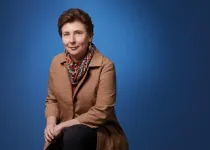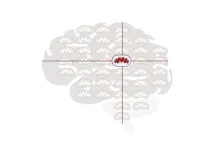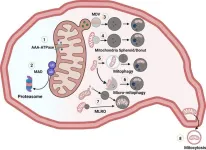(Press-News.org) The pandemic put a spotlight on the challenges that health systems face when deciding how to allocate scarce resources during a time of crisis. To better understand differing opinions on this issue, researchers at the David Geffen School of Medicine at UCLA and UC Health conducted a survey of laypeople and healthcare professionals, and found that while both groups have similar priorities for allocating medical resources, they are less aligned on how these priorities should be achieved.
“We did this study in response to concerns in the pandemic that we could run out of critical resources, such as mechanical ventilators, and that health systems in California would have to make impossible decisions about who should get the limited equipment or medicine during a crisis,” said Dr. Russell Buhr, a pulmonary and critical care physician at UCLA Health, a researcher at the David Geffen School of Medicine at UCLA and the UCLA Fielding School of Public Health, and the first author of an article in JAMA Network Open.
The study showed that saving the greatest number of lives possible was a top priority for both sets of respondents, but laypeople who may be subject to life-and-death decisions and care providers tasked with implementing the plans had different opinions on how the process should work.
Major findings include:
Health care providers and laypeople said Scarce Resource Allocation (SRA) policy should aim to save the most lives possible; laypeople scored this point higher than health care providers.
Health care providers were more likely to say life support should be taken from people less likely to survive so it could be used for people more likely to survive. Doctors in the health care provider group further deprioritized allocation of life support measures if a patient was expected to have a poor quality of life if they survived.
Both groups agreed that the SRA rules should apply to everyone, regardless of whether hospitalization was related to the cause of the crisis and regardless of whether the patients were admitted before the crisis was declared.
Both groups felt strongly that committees should be created to make these decisions, and the members should be blinded to the identities of patients for whom decisions are made.
Neither group felt that disability status or age should significantly influence allocation decisions.
Laypeople were more likely to agree with special exceptions to SRA policies.
Compared with health care providers’ responses, laypeople’s responses were significantly more aligned with UC Health’s SRA policy regarding health factors, social factors and exemptions, but “taken together, the values of the survey respondents were in agreement with UC Health policy.”
The survey was prompted by the work of the University of California multicampus Critical Care Bioethics Working Group, convened in March 2020 to develop guidance on scarce resource allocation. The research team recruited 1,971 study participants, 1,545 of whom completed questions on a web-based survey related to “scarce resource allocation,” or SRA. Average age of respondents was 49, 73% of respondents were female, and 30% were health care providers.
Researchers said they hope the information gained from the survey will help policymakers as they continue to evaluate existing guidelines to be best prepared for future health care emergencies.
“Because of how quickly the COVID-19 crisis worsened, decision-makers had to write policies very quickly,” Buhr said. “By understanding what health care professionals and patients we care for value and feel is the ‘right’ way to do this, we can ensure that future policies reflect everyone’s voices and that the decisions are as fair and equitable as possible.”
Authors In addition to Buhr, who is also affiliated with the Greater Los Angeles Veterans Affairs Healthcare System, authors include Lauren Wisk, PhD, a researcher with the Division of General Internal Medicine and Health Services Research in the David Geffen School of Medicine at UCLA; Ashley Huynh, with the Clinical and Translational Science Institute (CTSI) Research Associates Program at UCLA and the University of California, Irvine; Connie Lee, with the CTSI Research Associates Program at UCLA and Keck Graduate Institute School of Pharmacy and Health Sciences; Dr. Vishnu Nair, with the David Geffen School of Medicine at UCLA and the Department of Medicine at Stanford University; and Ruby Romero, with the Division of General Internal Medicine and Health Services Research at the David Geffen School of Medicine at UCLA.
Funding This project was supported from a contract from the University of California Office of the President (62165-RB) and by the UCLA Clinical and Translational Science Institute (NIH/NCATS UL1TR001881). Dr. Buhr is additionally supported by a career development award from the UCLA CTSI (NIH/NCATS KL2TR001882) and loan repayment program award (NIH/NHLBI L30HL130125). Dr. Wisk is additionally supported by a career development award from the National Institutes of Health (NIH/NIDDK K01DK116932).
END
Health professionals and laypeople feel differently about allocating scarce lifesaving resources in a crisis
A survey initiated early in the COVID-19 pandemic shows respondents’ priorities on resource allocation ‘moderately aligned’ with UC Health’s interim policy
2024-03-12
ELSE PRESS RELEASES FROM THIS DATE:
PNAS announces six 2023 Cozzarelli prize recipients
2024-03-12
WASHINGTON, DC – The Editorial Board of the Proceedings of the National Academy of Sciences (PNAS) has selected six papers published by PNAS in 2023 to receive the Cozzarelli Prize, an award that recognizes outstanding contributions to the scientific disciplines represented by the National Academy of Sciences (NAS). Papers were chosen from more than 3,000 research articles that appeared in the journal last year and represent the six broadly defined classes under which the NAS is organized. Additionally, the Editorial Board has recognized ...
Association for Psychological Science announces new convention plan to foster global psychological research
2024-03-12
Washington, D.C. (March 12, 2024) — The Association for Psychological Science, the leading global organization dedicated to advancing scientific psychology for the benefit of science and society, is revamping its roster of regularly scheduled events to better foster global scientific collaboration and environmental sustainability.
Starting in 2025, APS will merge its Annual Convention and the biennial International Convention of Psychological Science (ICPS). The new APS Annual Convention will rotate outside of North America ...
Mount Sinai establishes Department of Public Health
2024-03-12
Watch the video announcement here.
New York, NY (March 12, 2024) – The Icahn School of Medicine at Mount Sinai, fulfilling its commitment to connecting medical care with public health, today established a new Department of Public Health under the visionary leadership of Rosalind J. Wright, MD, MPH, the Horace W. Goldsmith Professor in Children’s Health Research at Icahn Mount Sinai.
The Department of Public Health will bridge the school’s existing excellence in environmental medicine, population health, global health, infectious disease, climate science, digital health, data science and artificial intelligence, community engagement, ...
Who benefits from direct-to-consumer pharmaceutical advertising?
2024-03-12
A new study co-authored by a University of Massachusetts Amherst economist reveals the value of government vaccine recommendations to drugmakers, as well as potential benefits of advertising pharmaceuticals directly to consumers — a practice that is banned in every country apart from the United States and New Zealand. The research is the most comprehensive investigation to date of manufacturer marketing and consumer response to adult vaccine recommendations.
After the U.S. Advisory Committee on Immunization Practices (ACIP) recommended in 2014 that people aged 65 and over receive the pneumococcal vaccine Prevnar 13, Medicare and private ...
Discovery of a natural protective response in the brain could lead to treatments for concussions
2024-03-12
A team of Medical University of South Carolina researchers, led by Onder Albayram, Ph.D., reports in PNAS Nexus that they have discovered a novel protective response by which the brain naturally repairs itself after traumatic brain injury. Findings could lead to drug treatments that improve the brain’s ability to recover after concussions and prevent long-term brain disease.
“Brain recovery mechanisms are very, very powerful,” said Albayram. “We don’t always have to develop new treatment approaches. We can also just give the brain a chance to heal itself properly.”
Repetitive mild ...
Climate polices to reduce motor vehicle emissions can improve children’s health, save money
2024-03-12
A new study finds that policies to reduce carbon dioxide (CO2) emissions from motor vehicles combined with investments in electric vehicles and public transportation would reduce air pollution and bring large benefits to children’s health. They would also save money.
The findings by researchers at Columbia University Mailman School of Public Health with collaborators at the University of California, Los Angeles, the University of North Carolina at Chapel Hill, and the Boston University School of Public Health appear in the journal Environmental Research ...
Research finds a college degree remains a sound investment despite rising tuition
2024-03-12
A new analysis of 5.8 million Americans finds that earning a college degree is still a sound investment, although the rate of economic return varies across college majors and student demographics. The findings come as skepticism continues to grow over the value of a degree in the face of rising college costs, a decline in college enrollment, and a transforming economy.
The study was published today in American Educational Research Journal, a peer-reviewed journal of the American Educational Research Association. It was conducted by Liang Zhang from New York University, Xiangmin Liu from Rutgers University, and Yitong Hu from New York University.
The study estimated ...
Understanding chronic liver disease through the powerhouse of the cells
2024-03-12
Scientists have identified a new organelle in liver cells called the mitochondria-lysosome-related organelle (MLRO). This discovery could improve our understanding of chronic liver diseases like alcohol-associated liver disease (ALD) and metabolic dysfunction-associated fatty liver disease (MAFLD).
Mitochondria are essential components of cells, often called the "powerhouses" because they generate energy. They also play a crucial role in metabolism, calcium signalling, and cell survival. When mitochondria malfunction, it's linked to various liver diseases.
Cells have intricate mechanisms to maintain healthy mitochondria. One way is to ...
Outstanding achievements of UNIST students at the 30th Samsung Humantech Paper Award ceremony!
2024-03-12
Four exceptional UNIST students were honored for their outstanding academic and research achievements at the prestigious 30th Annual Samsung Humantech Paper Award ceremony.
Among the many eminent individuals, JungSoo Lee (Advisor: Professor Han Gi Chae) from the Department of Materials Science and Engineering notched the highest score and won the Gold Prize within the category of Energy & Environment. His groundbreaking research on enhancing the efficiency of thermoelectric power generation through the development of a new power generation device structure technology earned him this accolade. By focusing on optimizing the structure ...
Increasing disability employment could boost national economy by billions
2024-03-12
-- There is a widening employment gap between people with and without disability --
-- In 2022, only 53.1 per cent of people with work-limiting disability were employed, compared to 81.8 per cent of people without disability --
-- People with disability are 25-30 percentage points less likely to be employed --
-- Over a quarter of people with disability cite transport as a barrier to finding work --
A new report by the Bankwest Curtin Economics Centre at Curtin University reveals that there has been no improvement in employment rates for people with disability ...
LAST 30 PRESS RELEASES:
New research finds heart health benefits in combining mango and avocado daily
New research finds peanut butter consumption builds muscle power in older adults
Study identifies aging-associated mitochondrial circular RNAs
The brain’s primitive ‘fear center’ is actually a sophisticated mediator
Brain Healthy Campus Collaborative announces winner of first-ever Brain Health Prize
Tokyo Bay’s night lights reveal hidden boundaries between species
As worms and jellyfish wriggle, new AI tools track their neurons
ATG14 identified as a central guardian against liver injury and fibrosis
Research identifies blind spots in AI medical triage
$9M for exploring the fundamental limits of entangled quantum sensor networks
Study shows marine plastic pollution alters octopus predator-prey encounters
Night lights can structure ecosystems
A parasitic origin for the ribosome?
A gold-standard survey of the American mood
Tool for identifying children at risk of speech disorders
How Japanese medical trainees view artificial intelligence in medicine
MambaAlign fusion framework for detecting defects missed by inspection systems
Children born with upper limb difference show the incredible adaptability of the young brain
How bacteria can reclaim lost energy, nutrients, and clean water from wastewater
Fast-paced lives demand faster vision: ecology shapes how “quickly” animals see time
Global warming and heat stress risk close in on the Tour de France
New technology reveals hidden DNA scaffolding built before life ‘switches on’
New study reveals early healthy eating shapes lifelong brain health
Trashing cancer’s ‘undruggable’ proteins
Industrial research labs were invented in Europe but made the U.S. a tech superpower
Enzymes work as Maxwell's demon by using memory stored as motion
Methane’s missing emissions: The underestimated impact of small sources
Beating cancer by eating cancer
How sleep disruption impairs social memory: Oxytocin circuits reveal mechanisms and therapeutic opportunities
Natural compound from pomegranate leaves disrupts disease-causing amyloid
[Press-News.org] Health professionals and laypeople feel differently about allocating scarce lifesaving resources in a crisisA survey initiated early in the COVID-19 pandemic shows respondents’ priorities on resource allocation ‘moderately aligned’ with UC Health’s interim policy




